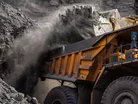NSW mines given decade delay for coal environmental offsets

Despite recurring promises and assurances to protect conservation sites, the environment, and to slow the rate of damaging operational emissions, governments are continuing to delay environmental offsets for coal mines, with companies in New South Wales awarded 10 more penalty-free years.
Permission has been granted from federal and state regulators to nine New South Wales coal mines, giving them the go-ahead to resume operations as normal despite negative side effects to the surrounding environment and habitat. Glencore’s Ulan mine, located near Mudgee, has secured a total of eight extensions over the course of eight years, allowing the company to continually push back its promised deadline. Already, the mine is responsible for the destruction of box gum woodland and valuable surrounding habitat, and although the miner has made an effort to protect its required offsets, there still remains 10 outstanding hectares of vulnerable land uncovered.
Environmental offset deadlines repeatedly being pushed back
BHP’s Mount Arthur coal mine, Yancoal’s Mount Thorley Warkworth mine, and MACH Energy’s Mount Pleasant mine are among the other projects that have yet to succeed in fully and permanently protecting sites, all similarly being awarded recurring deadline delays.
However, the miners are keen to avoid all blame falling solely to them. Companies have called out ongoing disputes between federal and state governments as well as temperamental conservation legislation for making the problem difficult to pin down and tackle efficiently.
“Offsets facilitate environmental destruction while kicking the claimed compensatory measures down the road,” says Kim Garratt, Australian Conservation Foundation investigator. “The worst thing about these examples is that they’re not unusual in any way - it’s par for the course that big, billion-dollar coal companies are granted almost infinite extensions to the timeline for securing offsets.
“Regardless of who is to blame for any specific offset being delayed, the fact is that until these habitats are legally protected, the company can walk away from their commitment tomorrow.”
Miners assure delays are for good reasons
Currently, a disappointing total of just two infringement notices have been handed out to companies that have failed to meet offset deadlines - AUS$20,400 to Queensland Curtis Island LNG, and AUS$13,320 to Crudine Ridge windfarm.
“If the aim is to maintain or improve biodiversity, it is utterly ineffective,” says Lock the Gate Alliance’s NSW Coordinator, Georgina Woods. “That doesn’t appear to be the aim, though - it really looks like a system designed to sweep biodiversity aside as an issue altogether.”
But the environment department remains adamant that delays are only ever awarded for a good cause, and normally for reasons the company is unable to control.
“Reasons include state nature conservation department or land titles agency backlogs, or the breakdown of contract negotiations with third parties who were to provide the offsets,” a spokesperson for the department says. “In the majority of cases, before the legal security of any offsets are finalised, the offset properties are in the control of the approval holder and managed as an offset from early on in a project’s life.”



